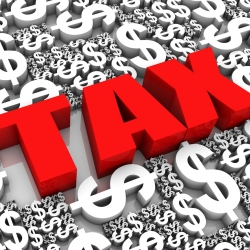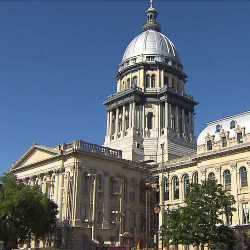Gambling Tax Rates from Around the World

In numerous countries around the world, gamblers are taxed on their winnings, which may seem a little unfair considering the monetary risks that they undertake when gambling. While in most cases these taxes represent just a small amount of their winnings, spare a thought for casinos which end up paying huge rates of tax on their Gross Gaming Revenue (GGR).
Each country collects its own GGR payments in a different way, but most commonly it is calculated as a percentage of the net profit that is made by the casino. This is one way that local communities, as well as a country’s economy as a whole, can get the most out of their regulated gambling, and in 2006, for instance, the USA collected a massive $90 billion in Gross Gaming Revenue.
What GGR Rate Makes Sense?
Finding what GGR level makes sense can be hard for governments, who clearly would like to derive the most monetary benefit from their regulated industries, but not in such a way that it might discourage new business from opening up in the country. In other words, there is a delicate balance that governments across the world need to strike in order not to sabotage their own self interest as far as gambling taxes are concerned.
Different Approaches
– Kenya
In 2017, Kenya raised its gambling taxes on casinos, gambling firms, and lotteries to 35 percent tax representing a huge leap from the previous held rate of 12 percent. On the plus side, the figure was still not as steep as the once-rumored 50 percent rate that was being considered. In the meantime, the government defended its decision by stating that it wanted to use some of the money to help young people in Kenya to pursue career choices that did not involve gambling.
– Cambodia
By contrast, Cambodia has encouraged new businesses to invest in the country’s gambling industry by lowering the tax rate to one of the most competitive on the planet. This has meant reducing it to below that of even Singapore, which boasts a 10 percent rate, and moreover, Cambodia’s decision seems to have already born fruit and had a positive impact on its financial numbers. From 2015 to 2016 period, for instance, the budding gambling country witnessed a 38 percent increase in the revenue it generated from gambling, with growth expected to continue at an equally impressive rate.
Though the two tax rates mentioned may seem extreme, they are by no means the highest or lowest examples within the industry.
Highest Gambling Tax Rates
Here’s a look at the top 10 countries charging the highest gambling tax rates, with the figures mentioned being the upper case amounts possible:
Germany (90%)
France (80%)
Austria (80%)
Luxembourg (80%)
Denmark (75%)
Poland (50%)
UK (50%)
Australia (45%)
Macau (39%)
Kenya (35%)
Lowest Gambling Tax Rates
Russia (0%)
Italy (0%)
Cambodia (2%)
Belgium (2.5%)
Czechia (6%)
US (6.75-8%)
South Africa (9.6%)
Finland (12%)
Singapore (5-15%)
Portugal (15%)
Argentina (16%)
The Right Balance
Finding just the right tax rate to encourage a beneficial arrangement between the government and the gambling businesses that operate within the country might seem like a challenging task, but as can be seen from the above figures, there are many ways to approach the situation.
New Jersey versus Surrounding States
One of the biggest contrasts between different gambling taxes levied in the US is provided by New Jersey and its neighboring states. Casinos located in Atlantic City pay a tax of just 8 percent on their GGR, plus a further 1.25 percent which goes towards community investment funding projects. In comparison, Pennsylvania slot machine are taxed at a rate of 55 percent, and its table games at 16 percent; Maryland’s table games are taxed at 20 percent tax, and its video lottery terminals at between 50-61 percent; while in New York casino tax rates fall into the 31 to 41 percent range.
As a result, New Jersey’s 7 casinos paid $237 million in casino gambling taxes last year. Meanwhile, Pennsylvania’s 12 casinos forked out $1.379 billion in taxes, New York’s 9 casinos spent around $888 million, and Maryland’s 5 gambling venues were charged $452.9 million in taxes. Commenting on the approach taken by New Jersey, Spectrum Gaming Group analyst Michael Pollock, explained: “I think it’s right with a single-digit tax rate. It’s an enormous competitive advantage to the state to both existing and potential properties.”
Nevertheless, the incredibly low tax rate in New Jersey has still attracted criticism from certain quarters, with Assemblyman Chris Brown (R-Atlantic) suggesting that taxes should be raised in order to ensure “an additional, unfair tax burden” is not placed upon working families in the state.










